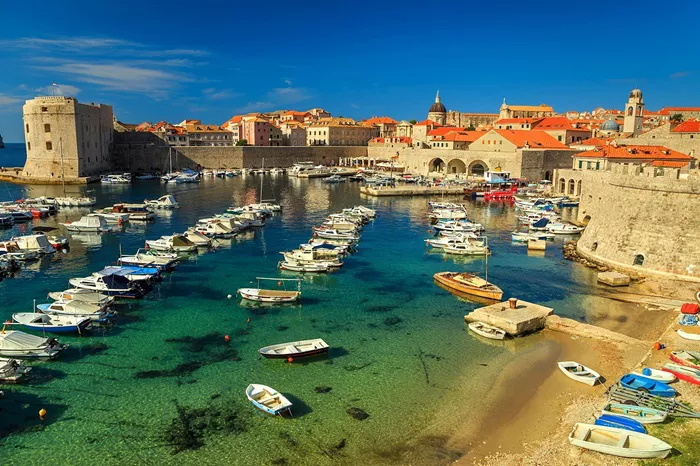Croatia, with its stunning Adriatic coastline, historic cities, and national parks, is a popular travel destination for UK citizens. Whether you’re planning a short vacation or an extended stay, it’s important to understand the entry requirements, health and safety guidelines, and other essential travel information. This article provides a comprehensive guide for UK citizens traveling to Croatia, covering everything from visa requirements to travel restrictions and health precautions.
Visa Requirements for UK Citizens
UK citizens do not need a visa to visit Croatia for tourism or business purposes for up to 90 days within a 180-day period. Croatia is a member of the Schengen Area, meaning that the same rules that apply to other Schengen countries apply here. The 90-day limit applies to stays within any Schengen country, not just Croatia. Therefore, if you have already spent 90 days in other Schengen countries within the last six months, you will not be able to enter Croatia without a visa.
Passport Validity
For UK citizens, passport validity is an essential aspect of traveling to Croatia. Your passport must be valid for at least three months beyond your planned departure date from the Schengen Area. It’s always advisable to check your passport’s validity before traveling, as immigration authorities may not allow entry with less than three months remaining.
ETIAS Requirement Starting 2025
Starting in 2025, UK citizens will need to obtain an ETIAS (European Travel Information and Authorization System) before traveling to Croatia. The ETIAS is an electronic travel authorization, designed to increase security and streamline entry into Schengen Area countries. The process will involve filling out an online application, providing basic personal details, travel information, and answering a few security questions. Approval is usually granted within minutes, but travelers are advised to apply at least 72 hours before departure.
Travel Restrictions and Current Advisories
As of 2025, Croatia has lifted most of the COVID-19-related travel restrictions. However, travelers are advised to check for any changes or updates closer to their travel dates, as restrictions could be re-imposed depending on the health situation. It’s always a good idea to stay informed about any travel advisories issued by the Foreign, Commonwealth & Development Office (FCDO).
Health and Safety Guidelines
Vaccinations: Croatia does not have specific vaccination requirements for UK citizens, but it is recommended to be up-to-date with routine vaccinations, such as those for tetanus, diphtheria, and polio. Travelers are also advised to consider getting the Hepatitis A and Hepatitis B vaccines, especially if planning to visit rural areas or eat in less-established eateries.
Health Insurance: While Croatia has a good healthcare system, it is advisable for UK citizens to obtain travel insurance that covers medical expenses, including emergency healthcare, hospitalization, and repatriation. As the UK is no longer part of the EU, the European Health Insurance Card (EHIC) is no longer valid for UK citizens, making travel insurance more crucial than ever.
Proof of Accommodation and Return Ticket
Upon arrival in Croatia, UK travelers may be asked to provide proof of accommodation, such as hotel reservations, rental agreements, or an invitation letter from a host in Croatia. Additionally, travelers must show proof of a return or onward ticket indicating they will leave Croatia before exceeding the 90-day limit.
Financial Means
Croatian authorities may require proof of sufficient funds to cover the duration of your stay. This could be shown through bank statements, cash, or credit cards. The exact amount required can vary, but it’s generally recommended that travelers have access to at least €50-€60 per day for their stay.
Duration of Stay and Overstay Penalties
UK citizens can stay in Croatia for up to 90 days in any 180-day period without a visa. If you wish to stay longer, you will need to apply for a longer-term visa or residence permit. Overstaying the 90-day limit can lead to penalties, including fines, deportation, and a potential ban on entering the Schengen Area in the future. It is crucial to adhere to the entry rules to avoid any complications.
Conclusion
In summary, UK citizens can travel to Croatia for up to 90 days without a visa, but they must meet specific entry requirements, such as passport validity, proof of accommodation, and sufficient financial means. Starting in 2025, the introduction of the ETIAS will require UK travelers to obtain prior authorization before visiting Croatia. It is essential to stay informed about health guidelines, travel advisories, and any changes in entry rules to ensure a smooth and enjoyable trip. Always remember to travel with comprehensive travel insurance to safeguard against any unforeseen health or travel disruptions.
By adhering to these guidelines, UK citizens can enjoy the beauty of Croatia while complying with all necessary regulations.

